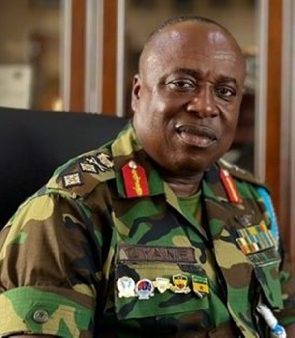The Kofi Annan International Peacekeeping Training Centre in Accra, Ghana, in collaboration with the Inter-regional Coordination Centre (ICC) for Managing Safety and Security in the Gulf of Guinea Maritime Domain in Yaoundé, Cameroon, is assembling senior-level women in maritime security to deliberate on the role and contribution of women in maritime security across West and Central Africa, from 5-7 September in Yaoundé, Cameroon.
Women play a vital role in the maritime sector, but they are often underrepresented and face significant challenges.
This meeting is the second in a series aimed at harnessing the contribution of women in maritime security governance.
The first such meeting was held in Cotonou, Benin, 19-20 July 2023. Maritime security is about the governance of our ocean waters away from issues and events that threaten safety and security of resources in the sea but also operations including maritime transportation and fishing.
At the same time, the sea has been a reliable space for criminals transporting prohibited goods such as narcotic drugs like cocaine, heroin, methamphetamine but also trafficking and smuggling of human beings.
Others such as pirates, also target container cargo vessels carrying the goods that we use on land on a daily basis.
The attacks on vessels by pirates have effects on the prices we pay for imported goods such as sugar and clothing because marine insurance companies would raise their premium because attacks by pirates means such waters are not safe for marine transportation. All such costs are passed on to end-users of imported goods in the form of high commodity prices.
Meanwhile, in each country, governments have dedicated agencies tasked with ensuring safety and security in their oceanic waters. Such agencies include the Navy, Customs, Immigration police, Maritime authorities, port authorities among many other agencies.
The maritime sector has traditionally been male-dominated, with limited representation of women in leadership positions. However, in recent years, there has been a growing recognition of the invaluable contributions that women can make in the maritime industry, particularly in the field of maritime security.
Women bring unique perspectives, skills, and experiences that contribute to effective decision-making, innovation, and the overall advancement of the maritime sector. Women leaders in maritime security play a vital role in addressing various challenges faced by the industry, including piracy, maritime terrorism, illicit trafficking, and environmental threats.
Therefore, 40 women from state agencies will join academic institutions, private sector agencies and civil society organisations across West and Central African Countries to attend the high-level consultative meeting in Yaoundé.
Over three days, the meeting will discuss strategies to advance women's empowerment in the maritime sector, including:
• Sharing experiences and best practices related to women's participation in the maritime industry;
• Exploring ways to enhance access to education, training, and mentorship opportunities for women in maritime careers;
• Identifying and addressing barriers that hinder women's advancement in maritime careers;
• Strengthening regional cooperation and partnerships to promote women's empowerment in maritime industries; and
• Developing and promoting gender-responsive policies and legislation to support women's advancement in the maritime sector.
For an overall context, the meeting is part of activities of a 5-year joint maritime security project of the KAIPTC and the Government of Denmark for littoral states along the Gulf of Guinea in West and Central Africa. The above-mentioned project is titled:
“Integrated Responses to Threats to Maritime Safety and Security in the Gulf of Guinea Maritime Domain in West and Central Africa (2022-2026)”.
Again at the forthcoming meeting, the initial findings of a women in maritime practice guide which has been commissioned by the above-mentioned project, will be discussed for further input by the participants.
The participants are drawn from Cameroon, Congo, Gabon, Nigeria, Ghana, Cote d’Ivoire and also, associations of women in maritime security in the various countries, the ICC and the Central African regional observation and monitoring Centre in Pointe Noire, Congo.
General News of Wednesday, 6 September 2023
Source: peacefmonline.com

















